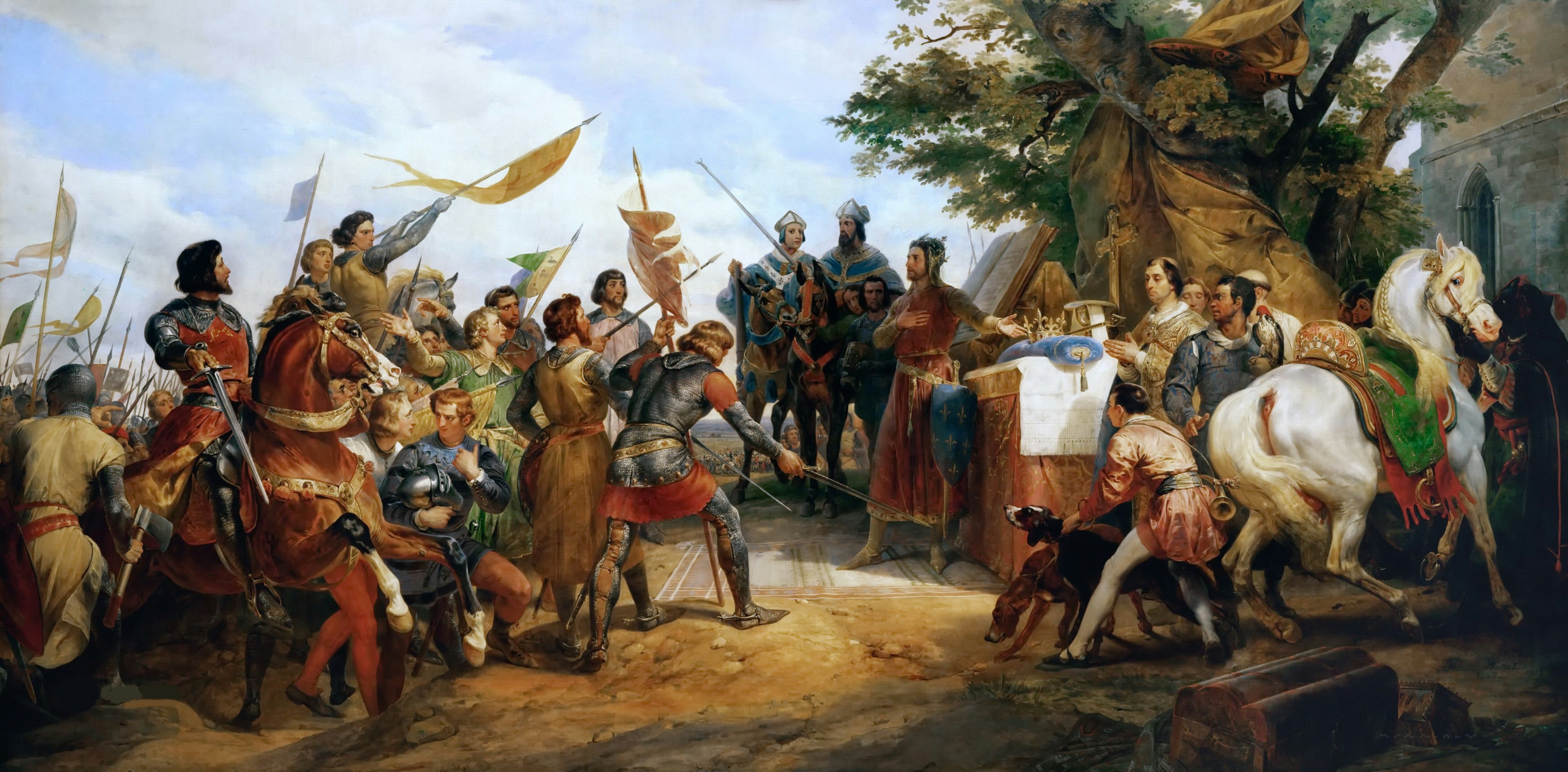Welcome to the first installment of my series "Battle Sequence." This series will feature the exploits of warriors and armies from the annals of the historical record. Each sequence will include such items as the cause of the battle, weapons technology, field deployment, etc. Let the battles begin!
 |
| King Phillip accepting the submission of his barons. |
When: 1214
Who: King Phillip II of France vs. allied forces consisting of Germans under emperor Otto IV, French rebel barons, and an English contingent.
For What: The fate of France as a united kingdom, or a divided feudal state.
How many: Approximately 15,000 (King Phillip) vs. 20,000 (Allies)
In a classic episode of Medieval politics, several French barons decided to rebel against their feudal king, Phillip II. Always eager to undermine the French crown, the English King John decided to seize this opportunity to expand his dynasty's holdings in Gascony and Normandy. The Holy Roman Emperor Otto IV also decided to capitalize on the confusion, so all the magnates got together and made common cause.
Phillip, on the other hand, was grateful to God for the opportunity to subdue his rebellious nobles and seize their lands. This is due to the state of France at this time. Many parts of the country were ruled semi-independently by various nobles, while other parts were under English control because of political marriages. The French king only had direct control over a small area around Paris called "Ile-de-France," so this was a perfect opportunity to expand his power.
The belligerents mustered their armies and marched roughly toward each other. They met in Flanders near the town of Bouvines. After hearing mass, the French king prayed to God for victory over the rebels. The king was flying his special banner, the "oriflamme." This was used only when fighting heretics, rebels, and Saracens. The armies were drawn up in a simple deployment of two lines divided into three battles. In other words, they were going to charge straight at each other in one climactic clash. With the emperor and the king at the center of their respective armies, they directly engaged each other in the field. Both men were thrown from their horses, recovered their mounts and resumed fighting. In a vicious struggle for the centre, the French and German nobles fought with the tenacity of their class. Eventually, the Germans faltered and the French won the center. The allied line started to crack and soon the whole army was in a route. The nobles and knights rode over the fleeing lines of the allied forces, capturing many. The French had won and only the emperor managed to escape capture.
Despite the length of the battle, only two hundred horsemen were reported killed. This is a testament to the equilibrium of offensive technology against defensive technology. The armor of the knights and foot soldiers had reached the point of almost complete protection from swords, arrows, and lances. This would eventually change with the advent of the longbow and handgun. For the soldiers engaged at Bouvines, however, it seemed to be a mere exercise of their martial livelihood. Significantly, only crusades included as many representatives from so many different countries, making Bouvines one of the most international battles of the age.
For the rebellious nobles, a large ransom was gathered to buy their release. Bouvines is an excellent example of how medieval battles were a lucrative affair for the victors. Phillip not only seized their lands, but also reaped huge revenues from the ransoms their families paid. The English Barons lost all their lands in France and King John was held accountable. A year later in 1215, he was forced to sign the Magna Carta and the English formed their first Parliament. In the end, France was put on the road to a more centralised and unified state and King Phillip was given the cognomen "Augustus" for his bravery and valor.

No comments:
Post a Comment